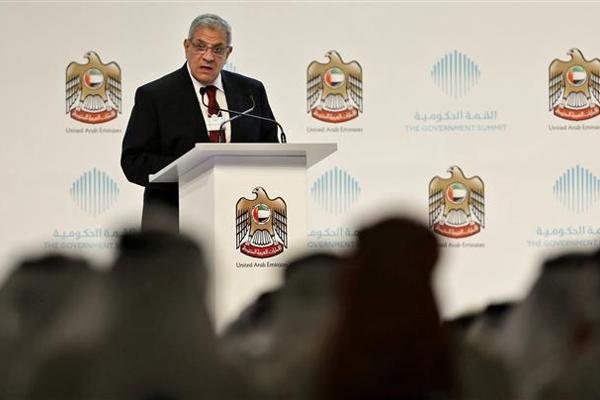Egypt agrees $36.2 billion in investment deals
SHARM EL SHEIKH - Agence France-Presse


Egyptian Prime Minister Ibrahim Mahlab. AP Photo
Egypt has agreed $36.2 billion (34.5 billion euros) in investment deals, Prime Minister Ibrahim Mahlab said Sunday at the close of a three-day conference to kick start the economy.The conference, which started with three Arab states pledging $12 billion in investments and aid, is seen by the government as a ringing endorsement of President Abdel Fattah al-Sisi and his fight against Islamist militants.
"Direct investment contracts that were signed are worth $36.2 billion," Mahlab announced at the end of the conference in the Red Sea resort town of Sharm el-Sheikh.
He added that Egypt also undertook 18.6 billion in financed projects such as for a power plant that the country would repay.
Egypt also won $5.2 billion in loans from international institutions, he said.
"It is for us now to work and sweat," Mahlab said.
The deals include a record investment by British Petroleum and its Russian partner DEA of $12 billion in Egyptian gas fields on the West Nile Delta.
German conglomerate Siemens signed a four-billion-euro power deal with Egypt, a company spokesman said Saturday.
Egypt also announced it had signed memorandums of understanding with an United Arab Emirates company for the construction of a new administrative capital.
At a speech earlier on Sunday, an ebullient Sisi addressed a cheering audience at the conference, surrounded by a group of youths he had called up to the stage.
"Egypt needs no less than $200 or $300 billion for there to truly be hope for 90 million Egyptians," Sisi said.
He added that he wanted to host such a conference every year and invite other countries who are facing economic difficulties.
The beaming president also mentioned that German Chancellor Angela Merkel had invited him for a visit.
The remark underscored the acceptance he has won since overthrowing his Islamist predecessor Mohamed Morsi in 2013, then winning an election amid a broad crackdown on the opposition.
Morsi's overthrow by then army chief Sisi unleashed the deadliest crackdown on the opposition in Egypt in decades, and left thousands in prisons.
Militants have conducted an insurgency in the Sinai Peninsula that killed scores of policemen and soldiers, and there have been regular small bombings in Cairo.
In Egypt, Sisi is popular among many who believe the country needs a tough leader, and he is staunchly backed by Gulf Arab states who despise Morsi's Muslim Brotherhood movement which has branches across the region.
Sisi has called for building a unified Arab force to fight the Islamic State group that has captured territory in Iraq and Syria, and which commands an affiliate in Egypt.
Cairo has already carried out air strikes against the jihadist group inside neighbouring Libya, where IS also appears to have gained a foothold.
Sisi, who has positioned himself as a bulwark against jihadists, had said investing in the Arab world's most populous country would help stabilise the entire region.
On the first day of the conference, attended by global political and business leaders, Saudi Arabia, Kuwait and the United Arab Emirates pledged $4 billion each in investment aid to Egypt.
Most of the funds will be invested in projects while $3 billion will be deposited in Egypt's Central Bank.
